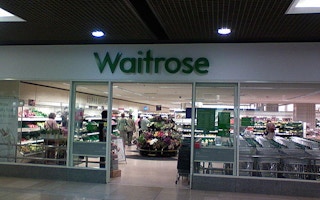A top British supermarket has pulled one of its corned beef brands off the shelves after a newspaper investigation found it might contain meat linked to slave labour on a farm in Brazil.
The Guardian newspaper said meat processing company JBS, which supplies beef to several leading UK food stores, had previously bought cattle from a farm in northern Brazil which is being investigated for using workers as modern-day slaves.
JBS told the Thomson Reuters Foundation it had stopped buying from the farm on discovering a possible link to labour abuses.
Upmarket British food store Waitrose said it was pulling one of its three own brand corned beef products while it investigated.
“While we have found no such concerns in our own supply chain … we are taking these allegations seriously so have stopped sourcing any of our corned beef from there (JBS) while we investigate fully,” the supermarket said in a statement.
JBS produce is also used in tinned corned beef sold by Marks & Spencer, Co-op, Sainsbury’s, Lidl and Princes, according to the Guardian, which added that some of these stores were now also investigating and examining their supply chains.
“
As soon as JBS became aware of irregularities in the farm’s operations in 2016, all livestock purchases from (there) were immediately stopped.
Carla Saemi, spokeswoman, JBS
Co-op said tackling modern slavery was central to its ethical trade strategy.
“We take such allegations very seriously and will be investigating with our suppliers in order to address any issues,” a spokesman said.
Marks & Spencer said it had not sourced canned corned beef from Brazil since autumn 2016.
Corned beef, a salt-cured product widely used during both world wars when fresh meat was rationed, remains popular in Britain where it is commonly used in sandwiches.
The newspaper said documents showed JBS paid 2 million pounds ($2.58 million) between 2013 and 2016 for cattle reared on a farm in the state of Para where prosecutors say workers were being subjected to modern slavery.
Brazilian police reportedly discovered men forced to live in inhumane and degrading conditions, with no shelter, toilets or drinking water. Prosecutors believe the workers were in debt bondage, the Guardian said.
The 2016 Global Slavery Index estimated about 46 million people are in some form of modern slavery - forced into manual labour, trafficked to brothels, victims of debt bondage or born into servitude - with about 161,000 people in Brazil enslaved.
JBS said the farm at the centre of the allegations had never been included in the government’s “blacklist” for slave labour.
“As soon as JBS became aware of irregularities in the farm’s operations in 2016, all livestock purchases from (there) were immediately stopped,” spokeswoman Carla Saemi told the Thomson Reuters Foundation in an email.
“JBS does not buy cattle from any farms which have any association with slave labour as listed by the Brazilian government.”
($1 = 0.7757 pounds)
($1 = 3.2807 reais)
This story was published with permission from Thomson Reuters Foundation, the charitable arm of Thomson Reuters, which covers humanitarian news, women’s rights, trafficking, corruption and climate change. Visit news.trust.org to see more stories.










